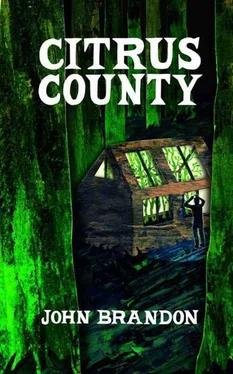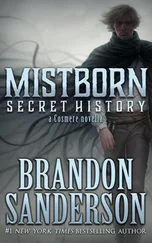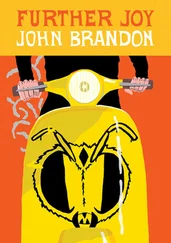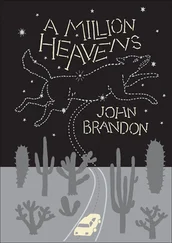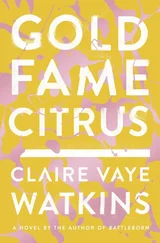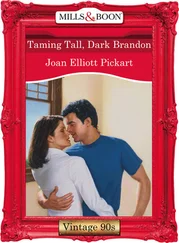Mr. Hibma knew he ought to talk to Shelby about her sister. He was likely the teacher she thought the most of, an adult whom, if she didn’t respect, she at least didn’t hold in contempt. He knew it was his moral duty to lend her his ear, his shoulder to cry on, but Mr. Hibma could not do these sorts of things. He was deficient. It was one of the many reasons he was not a real teacher. He saw the others do it, saw them take kids under their wings, saw them prod kids into spilling their guts. Some teachers did it for the drama and some because they genuinely cared, but the point was they did it. To Mr. Hibma it was unseemly, insinuating yourself into another person’s personal life. That’s what guidance counselors and therapists were for. Even the few kids Mr. Hibma enjoyed a rapport with he thought of as work acquaintances. Shelby was one of his favorites, and if he wasn’t going to help her now then he never would. He could feel that he wouldn’t. It went against his every fiber.
He turned toward the chalkboard and began erasing the vocabulary words. In the interest of burning time, Mr. Hibma gave ten vocab words a week. He had each class’s top kiss-ass write the words and the definitions on the board while the rest of the kids copied them. This took up fifteen minutes on Mondays. On Wednesdays, he allowed fifteen minutes of study time. On Fridays, fifteen minutes for the quiz. Blight. Wizened. Ransack.
Shelby had drawn a circle on the back of her hand and was darkening it in with a marker.
“That sort of thing is beneath you,” Mr. Hibma told her.
Shelby stopped filling in the circle but did not look at him.
“I’ve got books you can read, some good Jewish authors. Bellow, maybe.”
Shelby seemed intimidated by the idea. She glanced, not alertly, at a Dufy print — a bunch of horses at a racetrack.
Mr. Hibma felt like having a strong drink. If he stayed at this job much longer, he’d become one of those teachers who kept a flask in his bottom drawer. He went to the bookshelf and gathered the Bellow novels and put them on Shelby’s desk.
“We never know what’s going to screw us up,” he said. “We think it has to be glaring tragedies, but that’s not always the case.” Mr. Hibma wasn’t sure where he was going with this. He was, to his own surprise, taking a stab at being profound and helpful.
“Sometimes the tragedies strengthen us in the end. They make us more ourselves, you know — concentrate us.”
“Guess I’m pretty concentrated,” Shelby said. “I’m like that frozen orange juice.”
“Most of your classmates will live their whole lives without anything really good or really bad happening to them. They’ll see some funny movies and wait in some lines and maybe get their phones cut off or develop diabetes.”
Shelby nodded. Mr. Hibma might have been frightening her.
“I went to one of the fanciest high schools in the country my junior year. That’s the root of most of my problems. That and receiving an inheritance.”
“Was it a whole school of gifted kids?” Shelby said.
“Gifted.” Mr. Hibma shuddered. “Gifted is for chimps. They’ll probably ask you to be in that program soon and I hope you’ll turn them down. It’s a mark of mediocrity, gifted. You’ll have a hard enough time without those weirdos.”
“Why’d you only go to that school for a year?” Shelby asked.
“Why I got kicked out isn’t the important part,” Mr. Hibma said. “For seven months I enjoyed an environment of reflection, courtesy, fertilization of any intellectual whim. We had fireplaces to read near. They played Handel during the passing period.”
Shelby handled the Bellow novels, reading the spines. The breeze blew something against the window.
“Sometimes good things mess a person up,” Mr. Hibma said. He wondered if anything that happened was really good . He still hadn’t decided, after all these years, what he thought of the fact that he’d been a stolen baby. It had to mean something. It had to have shaped Mr. Hibma. “I’m not making sense,” he told Shelby. “I’m lousy at this.”
“You’re doing fine,” she said. “It’s not you. I don’t want to be comforted. I’m not receptive to wisdom or perspective.”
“But I’m supposed to be able to break down your walls.”
“A fool’s errand,” Shelby said. “You break down my walls, you’re not going to find anything you want to find.”
Mr. Hibma was stumped. He wanted to let Shelby know that she was special, that she couldn’t let herself be lost to the world because the world needed her. His voice had gone dumb. He’d given Shelby detention in part to test himself, to see if he could get her to confide in him, and he’d failed. Failed to try, really. He stood at the front of the room, lining the erasers up tight and orderly in the tray. He was angry at the world, that it gave the worthwhile people such a hard time. It was difficult for him to even look at Shelby. He dismissed her with a nod, letting himself off the hook.
He sat for a time, part and parcel of the imperfect quiet of the world, and then, when he could, he began drawing up a class rules sheet. He wrote numbers, 1 to 10, and next to each scribbled see surrounding classrooms. He taped the sheet to the wall.
Earlier that day, just after school had let out, Mrs. Conner had confronted him in the hall and informed him that it was her duty, as wing chairperson, to enforce the guidelines the liberal arts department had agreed upon. It was mandatory that each teacher post class rules.
“But every teacher has the same ones,” Mr. Hibma had said. “And those rules are identical to the school rules.”
“Exactly,” said Mrs. Conner. “A unified front.”
“I hate unified fronts.”
Mr. Hibma had never been to Mrs. Conner’s home, but he could see it. He saw a screened porch atop a wooden deck. He saw a shed, trimmed hedges. He knew now that he would not kill the husband. He would learn the couple’s routine and go visit Mrs. Conner when her husband was off playing golf or shooting woodland creatures or whatever activity he used as an excuse to get the hell away from his wife. Mr. Hibma had already scratched knives or guns, and had considered and thought better of poison. Poisoners always got caught. Mr. Hibma watched the TV shows. Whenever someone bought poison it turned out they’d been videotaped or had left the receipt in their floorboard or the clerk or another customer remembered them. Then the cops went and looked at your computer or library records and saw that you’d researched some topic that was vaguely related to poison. Then everyone said they should’ve known because you were always a little strange; you’d seemed harmless, though. As careful as you were, there was always something when you used poison. No, what Mr. Hibma saw himself doing was parking in the lot of the nearest strip mall and, in the middle of the night, sneaking onto the Conner property and hiding himself away behind the shed or under the deck, waiting for the husband to leave in the morning, then knocking on the front door and allowing a confused Mrs. Conner to present herself, barging in and throwing her down and smothering her under all his weight with one of her own couch pillows. There would be no blood, no loud noises, no purchases Mr. Hibma would have to make. Most of all, Mrs. Conner would get no last words.
“I’m not asking you,” Mrs. Conner said. She raked her rust-colored hair. “And I know about the vocab quizzes. Don’t try and legitimize your class by stealing from the English curriculum.”
“Which kiss-ass is spying for you?”
“Excuse me?”
“Let me tell you something,” Mr. Hibma said. “Your shoes are way too small. Your toes flop out onto the floor. Can’t you feel it?”
Читать дальше
